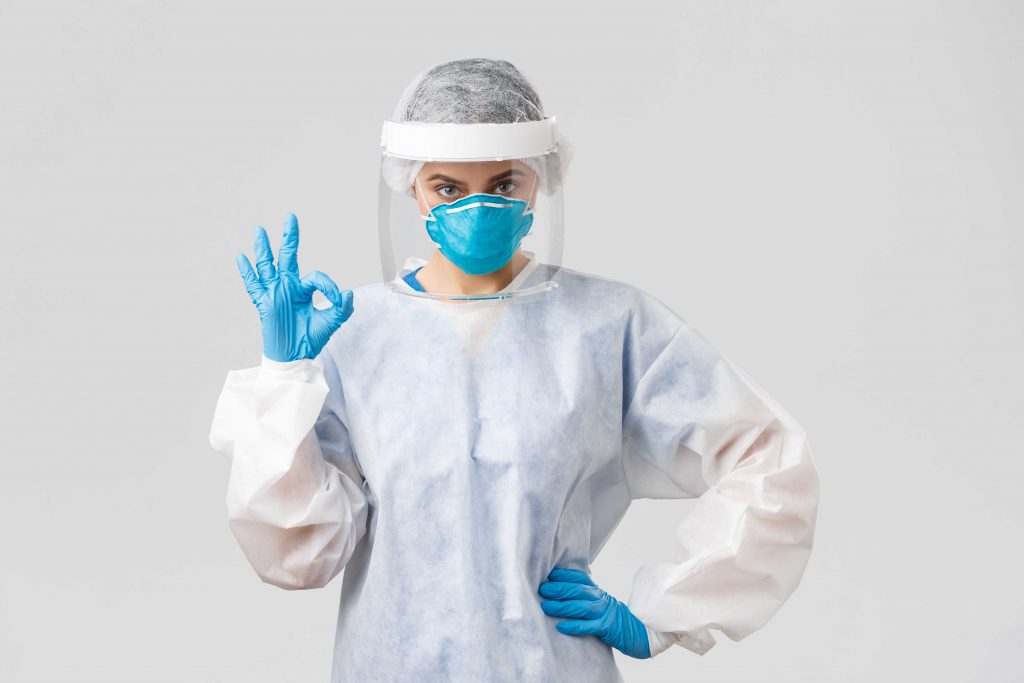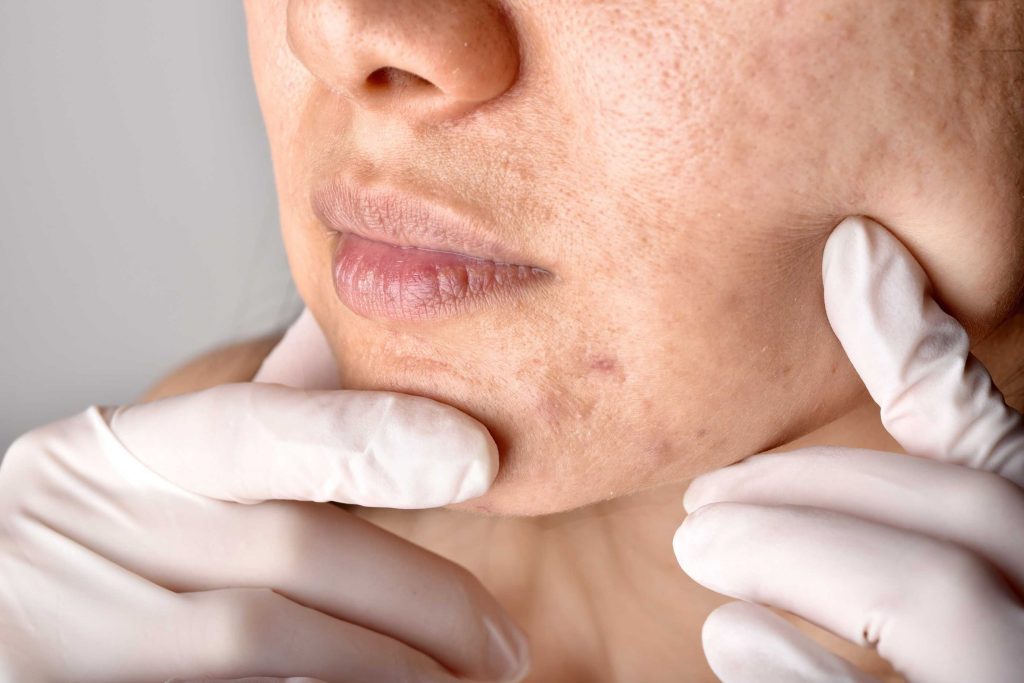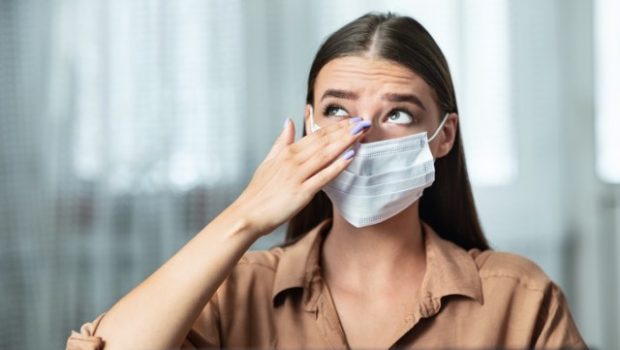Times have changed and wearing a mask, maintaining social distance and frequent washing/sanitizing hands have become the need of the hour. Face masks can protect users from airborne viruses, bacteria, and particulates. As states across the country ease restrictions, it’s important that people venturing out for various purposes take all possible precautions to prevent the spread of the virus.
Since the vaccine to this lethal virus still seems far, we are left with no option but to wear a mask on our face constantly when in public settings. But keeping your nose and mouth covered for a prolonged period of time can cause some side effects.
Whether you opt for a DIY mask using a bandana and elastics, or you buy a mask online, you’ve already discovered the uncomfortable side effects of wearing face masks for a longer period of time. The wearer may start facing challenges like difficulty in breathing, sweating, and the feeling of being trapped, skin irritation, rashes, chafing, and ‘maskne’ (acne caused due to mask). But that shouldn’t deter you from adhering to the guidelines by the CDC and the NCDC.
As compared to the general public, the side effects are more severe for health care providers, those working in health care facilities, and our frontline workers. They have no other option but to wear full-body personal protective equipment for the entire duration of their shift while they are serving and saving others, but at the same time want to protect themselves and their family ultimately. Because of this, their skin suffers from terrible skin injuries due to constant covering.

What is ‘maskne’?
It is not a medical term.Maskne is coined recently to refer to the acne being caused by prolonged wearing of face masks. People like healthcare workers, media professionals, or shopkeepers, who deal with the general public all day long, tend to get sweaty under their masks. This sweat and heat along with the friction caused by the mask can lead to clogging of pores. Since damp environments promote bacterial growth, it causes bacterial infused acne: Maskne.
Follow these steps to avoid any skin damage caused by wearing face masks:

- Cleanse your face: First things first! Cleansing your face twice a day is something you should practice regardless if you are wearing a mask or not. Doing it in the morning will remove any excess oil that has accumulated on your face overnight. On the other hand, cleansing before bed will wash away all the dirt and impurities that have accumulated on your face throughout the day. This step will also help your night creams and serums, which you should apply after the wash, sink deep into your skin and work their magic. But remember, do not overwash your face.
- Use a toner: Even after you cleanse your face, there is always some greasy residue left behind, which is completely normal. This is where the toner comes into picture. Using a toner after cleansing your face will remove any stubborn dirt or oil that your cleanser missed. Other benefits of using a toner: restores the skin’s pH level, closes pores, hydrates the skin, evens out skin tone, reduces acne and blackheads, and protects your skin from foreign impurities.
- Use plenty of facial serum: Facial serums are full of active potents: antioxidants that revive damaged or aging skin, peptides that stimulate collagen production, skin brighteners that fade age spots and acne scars, and hyaluronic acid that replenishes moisture to dry and parched skin. And the list of active ingredients and their benefits in facial serums goes on…
For all these reasons, you should always feed your face with serum after cleansing and toning your skin if you are wearing a face mask for long hours.
You can buy some of the best face serums on Slova Cosmetics.
- Apply a moisturizer: After serum, applying moisturizer is a must. Try to opt for a water/gel-based moisturizer that will keep your skin hydrated. If you have dry skin, you can go for a cream-based moisturizer.
- Always use sunscreen: Just because you are wearing a mask that doesn’t mean that you can forgo your daily dose of SPF. Applying sunscreen protects your skin from sun damage and you don’t have to worry about any pesky face mask tan lines. You can always opt for a gel-based sunblock that will not feel too sticky or thick on your face under the mask.
- Protect your lips: Dry and chapped lips are one of the most common side effects of wearing a face mask. To avoid this, you can apply petroleum jelly to your lips: after washing your face, before you put on your mask, and before bed.
Pro tip: You can apply a bit of petroleum jelly behind your ears to avoid any damage caused by the elastic of the mask.
- Skip heavy makeup products: Now would be the best time to ditch your make-up look. Since masks don’t allow proper airflow, your make-up can clog pores which can cause breakouts. You will need to change your makeup regime and go for the bare minimum to adapt to this new way of living. Now is the time to experiment with your eye make-up looks.
- Avoid trying new skincare products that can irritate your skin: Wearing a face mask for even a shorter period of time can make your skin sensitive. So, stick to your skincare regime and avoid trying out new and harsh products.
- Wear the right mask: It is critically important to wear the right mask. There are numerous types of masks available online, and also, many people are opting for DIY masks. Read which mask serves its purpose of eliminating the Sars-CoV-2. Consider the safety features provided by various masks, making it your number one priority while selecting.
Pro Tip: Opt for Eco Airmask which is proven to have hypo-allergenic fabric made out of patented anti-microbial technology.

- Wash your mask regularly: Oil, saliva sweat, and nasal mucus can get on your face mask. It is recommended to wash and dry your mask thoroughly before you use it again. So, it is advised to use reusable and washable masks because of their safety and longevity. Read how to wash your fabric mask.
Summing Up:
The use of face masks is one of the most important precautions in stopping the spread of coronavirus and there is no alternative for that in the current situation. But having to wear a mask for a longer period of time can result in flare-ups and can aggravate pre-existing skin conditions. Follow the above guidelines to tackle skin conditions due to constant face covering. Stay safe and stay healthy!

